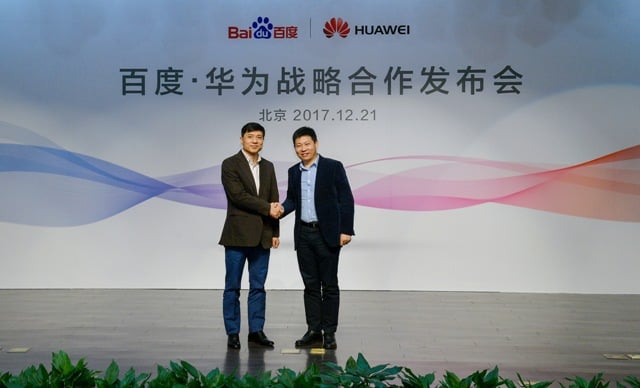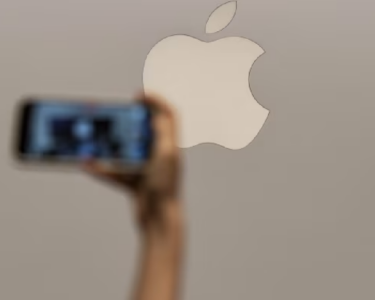Huawei and Baidu on the way to develop an open AI mobile ecosystem. To develop and build an open AI mobile ecosystem, including devices, technology, internet services, and content etc. Huawei will collaborate with a chinese search engine giant, as it has announced signing a strategic agreement to build an open mobile artificial intelligence (AI) ecosystem with Baidu.
Huawei’s HiAI platform and neural networkprocessing unit ( NPU ) will be used to build the open ecosystem, while Baidu’s PaddlePaddle deep-learning framework and Baidu Brain, containing Baidu’s AI services and assets, would also be used.
Baidu and Huawei will also work on improved voice & image recognition on smart devices. The cooperation will build a consumer augmented reality (AR) software and hardware ecosystem.
Content and internet services being explored by the Baidu and Huawei, will “strengthen cooperation in areas like search and feed to bring consumers a wealth of quality content with a more intuitive & convenient service experience.
Huawei Consumer Business Group CEO Richard Yu, says,
“The future is all about smart devices that will actively serve us, not just respond to what we tell them to do”.
Must Read: Duopix R1 by Ziox Mobiles supports the latest Android 7.0 OS
A strong background in R&D, will help Huawei work with Baidu to accelerate innovation in the industry, alongside developing the next generation of smartphones, and providing global consumers with AI.
According to Baidu CEO Robin Li, the company “dedicated” to explore AI, have announced the availability of its AMD EPYC-powered Artificial Intelligence, big data, & cloud computing (ABC) services, the last week.
Baidu hopes to use Huawei’s large customer base for its mobile AI project.
Huawei also added that the interactive technologies including voice, machine vision, & AI will drive the (phone) industry forward. And the originally developed to be personal tools, mobile phones would become a natural extension of the human body and AI-powered assistants for consumers.
Both the companies will continue to prioritise consumer needs and leverage strengths of each other to form a partnership that benefits everyone.
Huawei head of Consumer Software Engineering & director of Intelligence Engineering Felix Zhang said last month that the addition of AI capabilities to smartphones will bring the next shift in the field of technology, comparing AI to the advent of steam engines in terms of its capacity to fundamentally change the lives of people.
Change of two key aspects (User-machine interaction, and “context-personalised openness”) of the smartphone are associated with mobile AI.
The 1st aspect will improve efficiencies between the user and their phone across text, voice, video, image, and sensors, while the 2nd will actively provide services and aggregated information across content, apps, third-party features, & native features.
Zhang said in case you look at the whole ecosystem, the AI will basically change the phone from the smartphone to the intelligent phone.
In September, Huawei had unveiled its Kirin 970 chipset with built-in AI. Its new mobile AI is made up of a combination of cloud AI and on-device AI.
According to Yu, Huawei is committed to develop smart devices into intelligent devices by building end-to-end capabilities supporting coordinated development of chips, devices, and the cloud.
The ultimate goal is the provision of a significantly better user experience. The Kirin 970 is the 1st in a series of new advances that will bring powerful AI features to our devices taking them beyond the competition.




